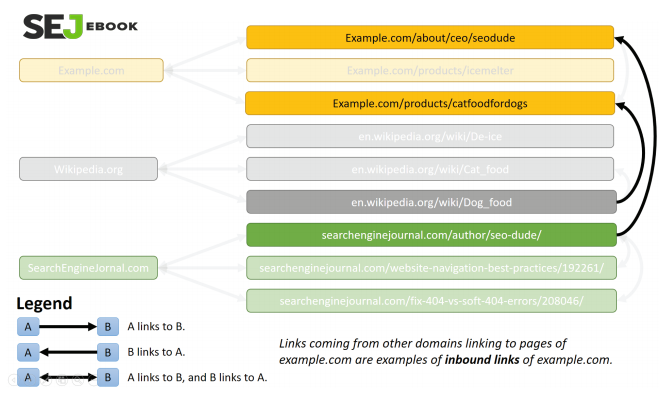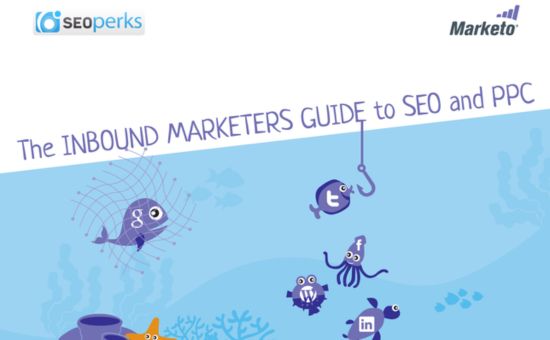SEO 101: Learn the Basics of Search Engine Optimization | SEJ
Search Engine Optimization
Well, SEO is a king now! Choosing the right words and phrases was never easy, therefore in this SEO basics for beginners’ guide we got you covered with tools and tips!
You probably want to rank higher in Google Search Engine, but believe it’ll be too difficult for you? Or maybe you’ve utilized other digital marketing channels and now want a consistent, reliable acquisition channel for gaining more traffic to your website?
This SEO basics for beginners’ guide is designed just for you. There is no longer wasting time and money learning about SEO through confusing sources and courses. Just one guide from the most trusted SEO references ‘Search Engine Journal‘ will teach you all that you need to learn SEO basics to be one of the top-ranked in Google Search Engine, not just that, but also make your website ready on many levels.
Just keep on reading to explore the SEO basics for beginners’ guide…
SEO Basics for Beginners: What is SEO in Digital Marketing?
According to this SEO basics beginners’ guide, SEO is search engine optimization, and it is the process we use to optimize a website’s technical configuration, content relevance as well as link popularity. We do so so a website’s pages can become easily findable, more popular, and relevant to user search queries, and as a consequence, search engines rank them better.
SEO in digital marketing means getting traffic from the organic, free, natural, or editorial search results on the search engines.
Moreover, SEO Keywords are topics and ideas that define what your content is about.
According to the SEO basics beginners’ guide, SEO are the phrases and words that searchers enter into the search engines, they’re also called “search queries”.
The process of search engine optimization usually starts with determining the best keywords to use in an article or blog. Keywords like ‘best dentist in Florida’ or ‘best restaurant in New York’ are words or phrases that online users commonly enter on search engines to get answers to their questions.
If you like to know what your target audience or ideal customer profile (IDF) frequently enters on search boxes, you can refer to the ‘People also search for’ section found at the bottom of Google. A list of related keywords will appear, which you can use to optimize your blog.
When choosing relevant keywords, a combination of short and long forms is highly recommended. A longtail or long-form keyword may not rank on top of search engine results pages (SERPs) like short ones, but they’re competitive to give you some traffic. However, this isn’t always the case, warranting the need for in-depth analysis.
Furthermore, keyword trends rapidly change over time. A set of keywords can elevate your SEO ranking in the next three to four months but won’t rank in the succeeding quarter.
This is where keyword research and collaboration as an editorial team come into play. So, it’s not surprising for digital marketing agencies to have a team of SEO specialists always available aside from writers and editors.
On a side note, there are many tools that can help you with choosing the right words and phrases to rank high such as KWFinder, it is one of the most accurate keyword finders in 2022 based on case studies.
According to the SEO basics for beginners’ guide, with KWFinder, you can do competitive research and this is by uncovering your competitors’ keyword usage. Dig deeper and get quick access to key metrics for your search marketing campaigns with KWFinder now!
SEO Basics for Beginners: Top 6 Tips for SEO Strategy
If you’re getting started with SEO, then here are the top 6 tips to help you do more and rank higher!
- Figure out your baseline, this is the first important step as SEO is all about improving your website’s search engine ranking.
- What does a strong SEO campaign need? KEYWORDS! keywords are the heart of any strong SEO campaign. so You need to identify target keywords that perfectly align with your website content and match your target audience’s search intent. To do so, you can use WordTracker, a powerful keyword research tool that will make you discover exactly what keywords your competitors are using and make a strong SEO campaign.
- Publish optimized content after identifying your critical and valuable keywords. That way you will start crafting high-quality content that will make up a big step of your content marketing strategy.
- Analyze your backlinks. In other words, links from high-authority, high-traffic domains are the most important and valuable and of course worth pursuing as a part of your digital marketing strategy.
- Take technical issues into account and explore them because your digital marketing strategy needs that.
- Based on the SEO basics for beginners’ guide, the top tip is to always stay informed because the field of SEO is always evolving, that’s why it takes specialists to dedicate their entire careers to it!
Gladly, as mentioned in the SEO basics for beginners’ guide, KWFinder and Word Tracker are top SEO tools to rank higher and boost your business.
Make sure to check the full SEO basics for beginners and get started!
What’s in the”SEO 101: Learn the Basics of Search Engine Optimization (SEO)” Guide:
- Chapter 1: 20 Years of SEO: A Brief History of Search Engine Optimization
- Chapter 2: What Is Search Engine Optimization
- Chapter 3: SEO Glossary: 200+ Terms & Definitions You Need to Know
- Chapter 4: Why Search – and SEO – Is Important
- Chapter 5: 60+ Mind-Blowing Stats About Search Engine Optimization
- Chapter 6: Meet the Major Search Engines
- Chapter 7: How People Search: Classifying & Understanding User Intent
- Chapter 8: 27 Free Tools to Help You Find What People Search For
- Chapter 9: Why Links Are Important for SEO
- Chapter 10: Why Keywords Are Perpetually Important for SEO
- Chapter 11: Why Content Is Important for SEO
- Chapter 12: 9 Essential Types of Web Pages Every SEO Needs to Know
- Chapter 13: How Long Does SEO Take?
- Chapter 14: 15 SEO Myths That Just Won’t Die
- Chapter 15: The 25 Best Blogs & Publications for Learning SEO
- Chapter 16: The Best SEO Conferences to Attend
- Chapter 17: 140 of Today’s Top SEO Experts to Follow
- Chapter 18: 11 Big SEO Challenges You’ll Face in Your Career

Figure Shows What Is Inbound Links
Number of Pages:
- 324 Pages
Pricing:
- Free







